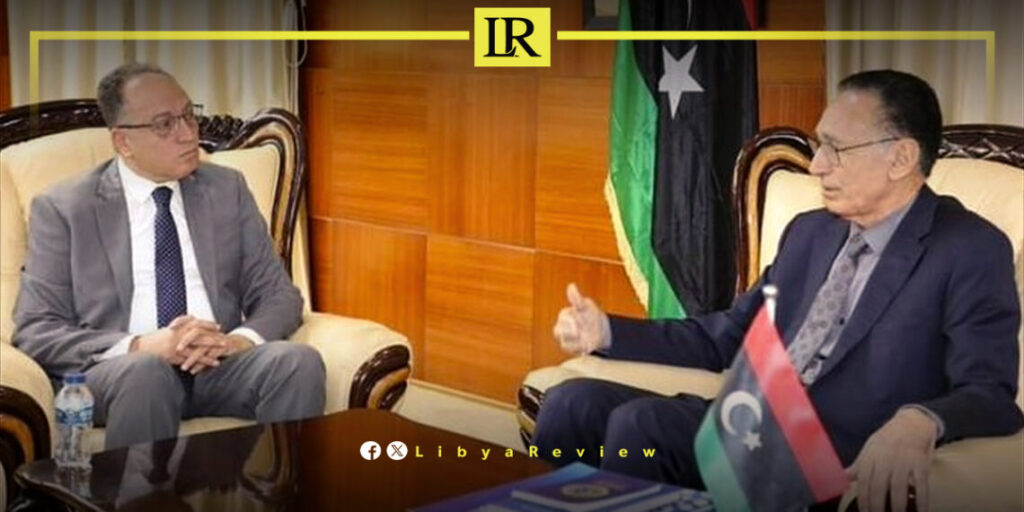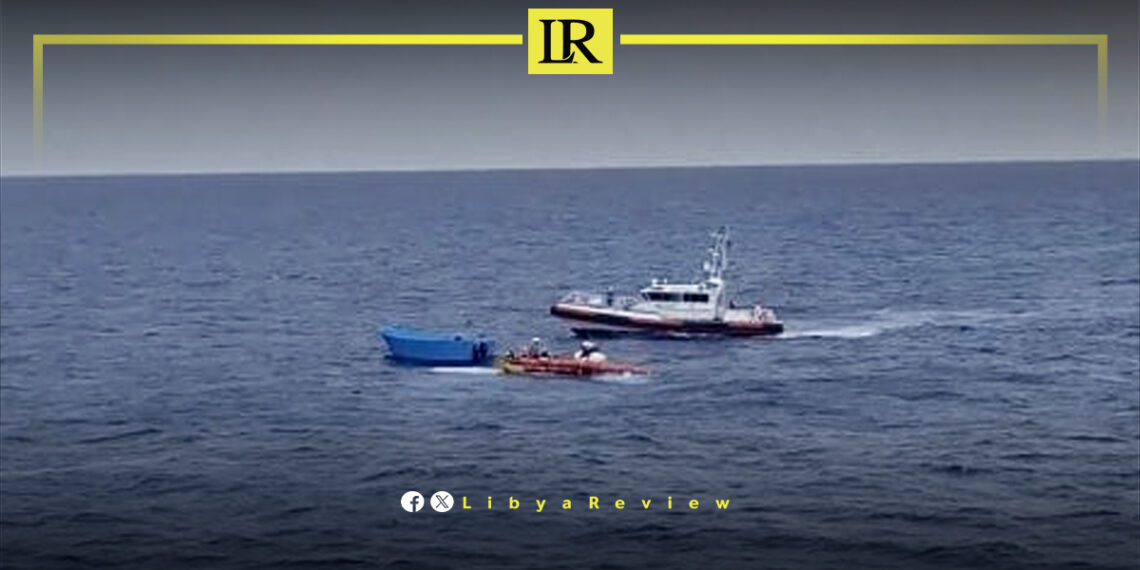NATIONAL SECURITY ISSUES
-
More than 100,000 Sudanese refugees have fled to Libya amid the escalating conflict in Sudan, with many hoping to continue their journey to Europe, according to Filippo Grandi, the United Nations High Commissioner for Refugees (UNHCR). Grandi issued a stark warning that if humanitarian aid to Sudan remains insufficient, the number of refugees making the dangerous trek across the Mediterranean to Europe could surge.
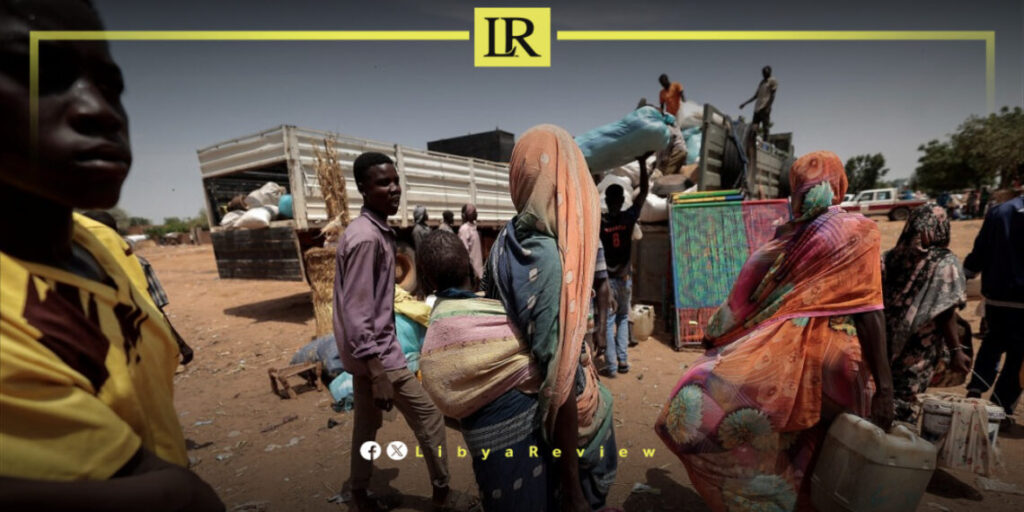
- Human Rights Watch (HRW) has strongly criticised the actions of the Libyan coast guard in the central Mediterranean Sea, highlighting the dangerous conditions faced by migrants attempting to flee Libya. The HRW report followed a recent incident involving the Geo Barents, a rescue ship operated by Médécins Sans Frontières (MSF), which was threatened by a Libyan coast guard patrol during a rescue operation. HRW detailed how the Libyan patrol boat, supplied by Italy with European Commission support, demanded that MSF halt the rescue of migrants from an overcrowded wooden boat. The coast guard allegedly threatened to open fire on the crew, but eventually allowed them to complete the rescue before leaving. The MSF ship later faced a 60-day detention order by Italian authorities upon arrival in Genoa, based on what HRW described as a flawed reliance on Libyan coast guard instructions.
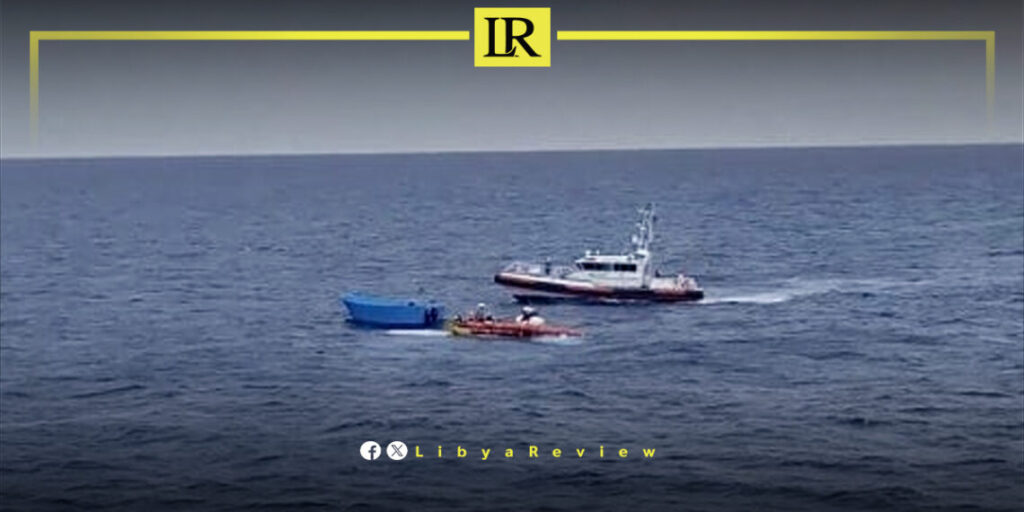
- Dozens of families of missing Moroccans in Libya have voiced their frustration at their government for failing to take action to discover the fate of their loved ones. Among the missing are individuals with higher education degrees who were reportedly lured into attempting illegal migration to Italy, according to their families. The families held a protest outside the Moroccan Ministry of Foreign Affairs in Rabat. The demonstrators sought to remind the government of a crisis that has persisted for years. Many of the families have tried to reach out to officials across various Moroccan institutions but have received no clear response. They remain in the dark about the fate of their relatives in Libya.
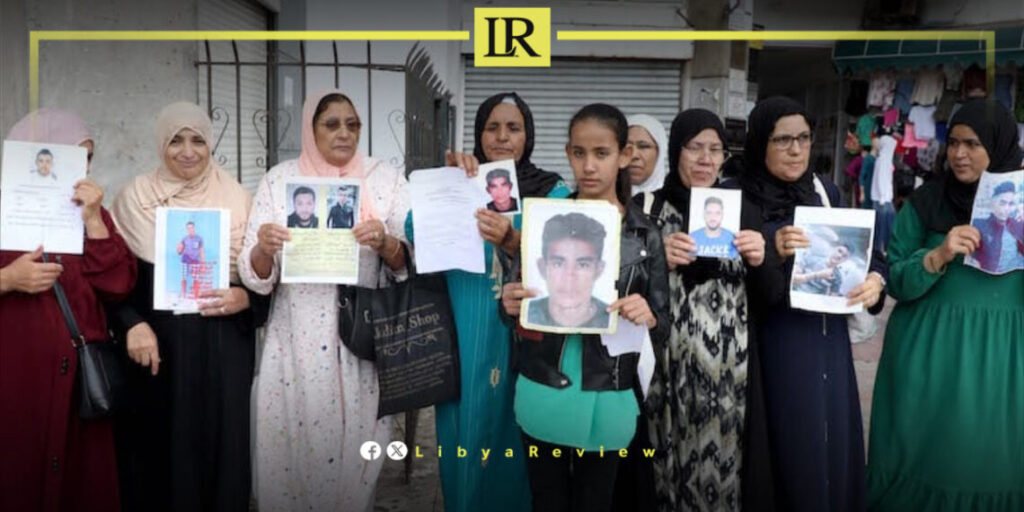
- The Anti-Narcotics and Psychotropic Substances Agency in Benghazi successfully apprehended a Libyan drug dealer after setting up a well-coordinated ambush in the Sidi Khalifa area. The suspect, identified by the initials “A. S. A.”, was found in possession of 190 narcotic pills and 9 pieces of hashish, which he intended to sell. Following the arrest, legal measures were taken against the suspect, and he has been referred to the relevant authorities for further investigation. Libya has been in chaos since a NATO-backed uprising toppled longtime leader Muammar Gaddafi in 2011. The county has for years been split between rival administrations.
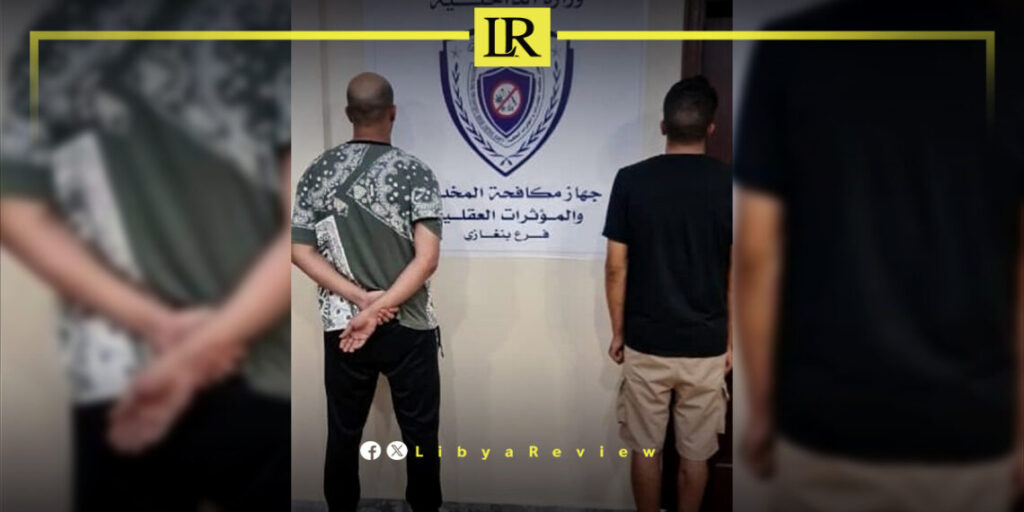
- On Monday, September 23, the General Commander of the Libyan National Army (LNA), Field Marshal Khalifa Haftar, held a high-level meeting with a US delegation led by Celeste A. Wallander, US Assistant Secretary of Defense for International Security Affairs, accompanied by Lt. Gen. John Brennan, Deputy Commander of AFRICOM, and Jeremy Berndt, the US Chargé d’Affaires in Libya. During the meeting, Haftar expressed his gratitude for the US’s efforts in supporting a resolution to the ongoing Libyan crisis. The discussions centered around enhancing security cooperation, particularly in supporting the LNA’s mission to combat terrorism, counter extremism, and address illegal migration across Libya’s borders.
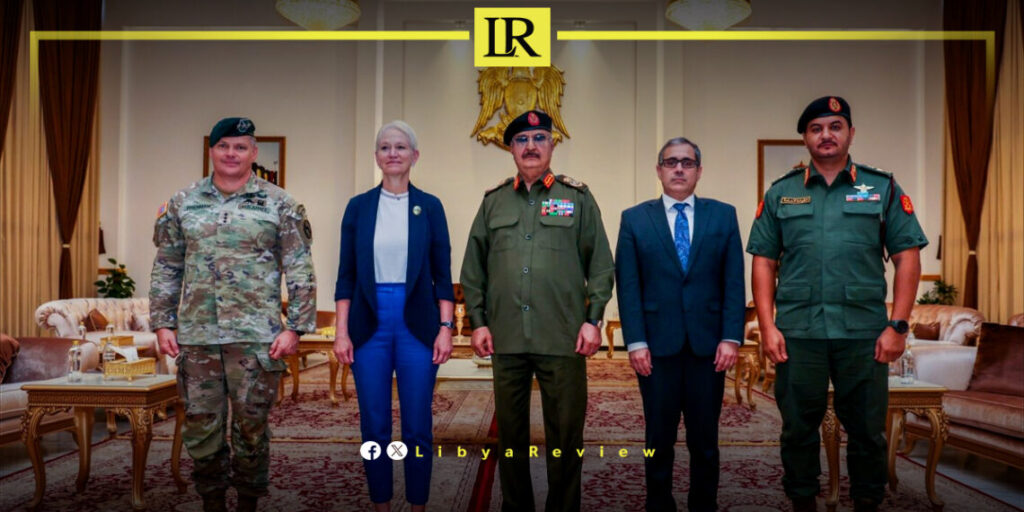
NATIONAL POLITICS AND SOCIAL ISSUES
- Member of the Libyan House of Representatives, Abdel-Moneim Al-Arfi, announced that the parliament is set to approve the appointment of a new Central Bank Governor during its upcoming session. In a press statement, Al-Arfi confirmed that the parliament will also ratify the agreement regarding the new Central Bank management board. He further stated that, in his capacity as a member of the Sovereign Positions Committee, he will push for a review of the appointments for the seven other sovereign positions. This session is expected to be a significant step toward addressing the management of Libya’s key financial institutions, as the country continues to navigate its political and economic challenges.
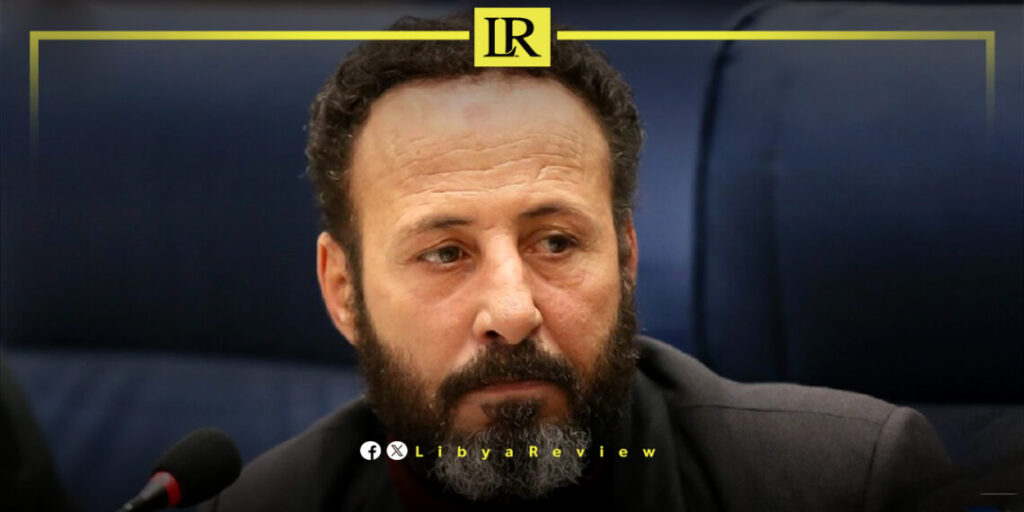
- The US Ambassador and Special Envoy to Libya, Richard Norland, renewed calls for the formation of a transitional government in Libya to address the country’s deepening political and economic crises. During a televised interview, Norland emphasized the need for political transparency and accountability, expressing hope that Libya can resume its political process and hold free and fair elections. The US Ambassador highlighted the urgent necessity of drafting a roadmap to finally carry out the long-delayed national elections. He also stressed the importance of resolving the ongoing crisis at the Central Bank of Libya, which has become a symbol of the country’s fractured institutions.
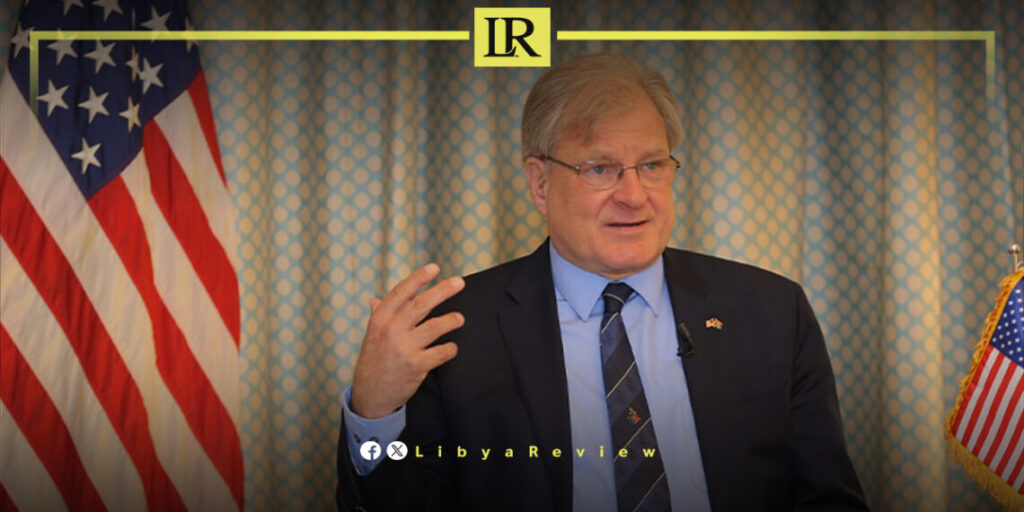
- The Military Academy for Security and Strategic Sciences in Al-Rajma, under the supervision of the International Humanitarian Law Committee of the General Command, in cooperation with the United Nations Mission in Libya, organized a two-day workshop on September 21-22, 2024. The workshop, titled “National, International, and Regional Mechanisms Related to Human Rights,” focused on training and enhancing the capabilities of members of the military judiciary and prosecution within the Libyan Armed Forces. This initiative is part of ongoing efforts to strengthen cooperation between relevant authorities and improve the legal skills of military judiciary personnel in line with international human rights standards.
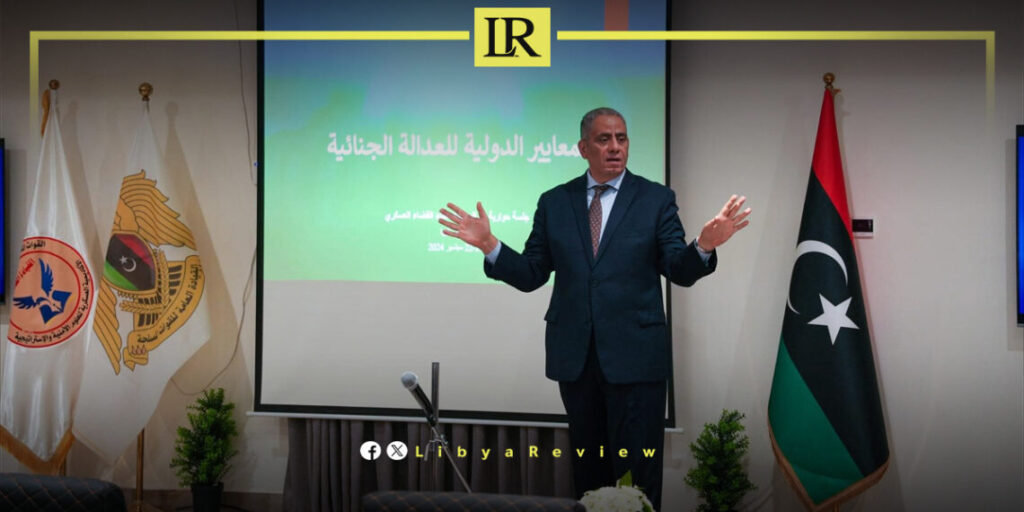
-
Justice Minister Halima Ibrahim inaugurated several judicial facilities in Tajoura on Sunday, including the Judicial Expertise and Research Centre, the Forensic Medicine Office, and the Forensic Medicine Institute. The ceremony saw the participation of several key officials, including the head of the Judicial Expertise and Research Center, the head of the Judicial Police, the head of the Real Estate Registration Authority, and the head of the Information and Documentation Centre.
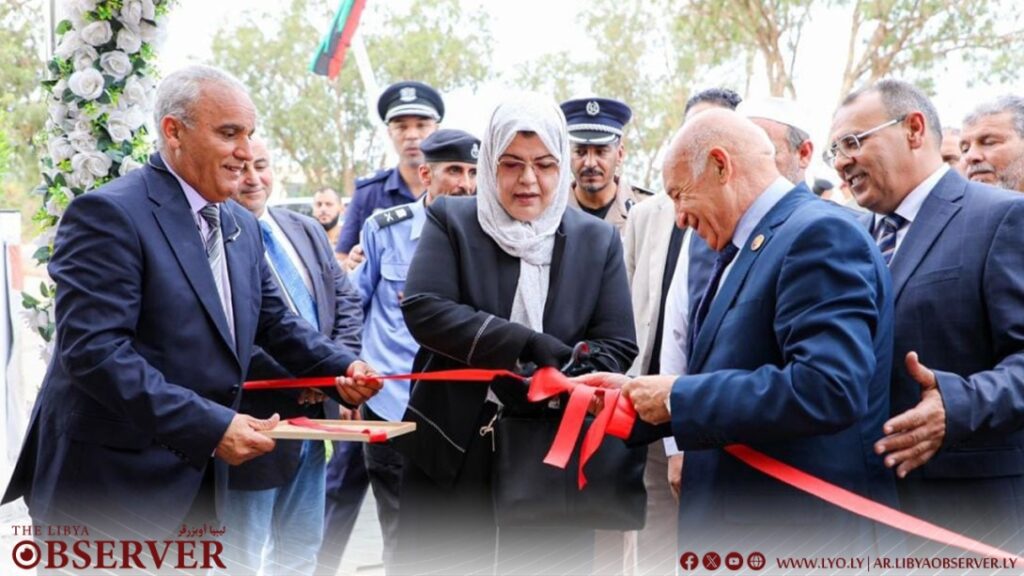
- The German Deputy Ambassador to Libya, Sven Krauspe, met with Emad Al-Sayeh, the head of Libya’s High National Elections Commission (HNEC), to discuss the latest developments in the electoral process for municipal councils. The discussions also covered the “PEPOL” project, which is funded by Germany and aims to support electoral processes in Libya. This project focuses on enhancing the efficiency and transparency of municipal elections, and providing the necessary resources for fair and credible elections across the country. The German Embassy highlighted that the United Nations Development Programme (UNDP) is providing technical and advisory support to the HNEC, ensuring that international standards are met in Libya’s municipal electoral process.
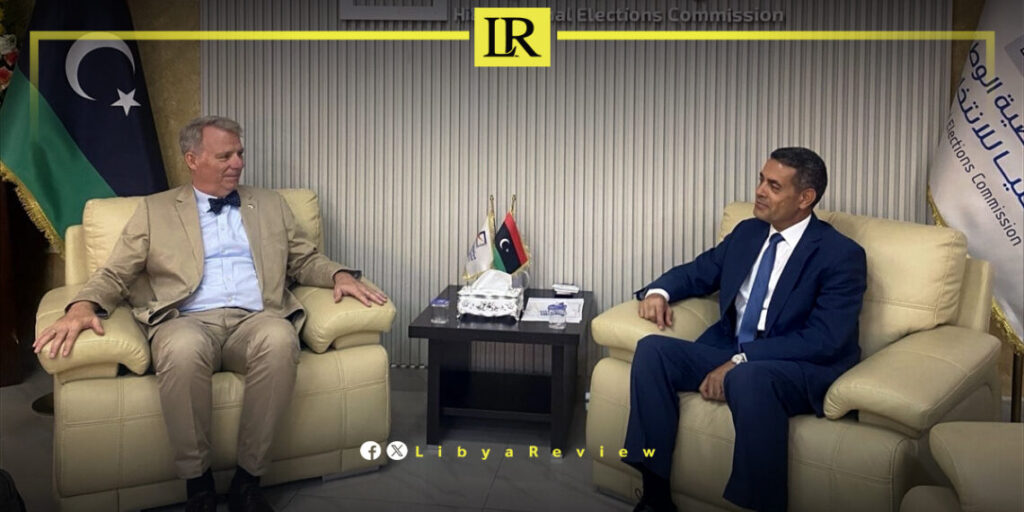
- The Libyan dinar has experienced a sharp decline in the black market, primarily driven by the ongoing leadership dispute within the Central Bank of Libya (CBL) and the halting of oil exports. The dinar’s fall highlights growing concerns about Libya’s fragile economy, which has long been under pressure due to political divisions and economic instability. On Monday, September 23, traders in Tripoli’s black market reported that the dollar was trading at 7.95 Libyan dinars, a significant drop from the 7.36 dinars seen just a week earlier. This 8% depreciation comes as the official exchange rate remains fixed at 4.7 dinars per dollar, creating a widening gap between the official and black-market rates.
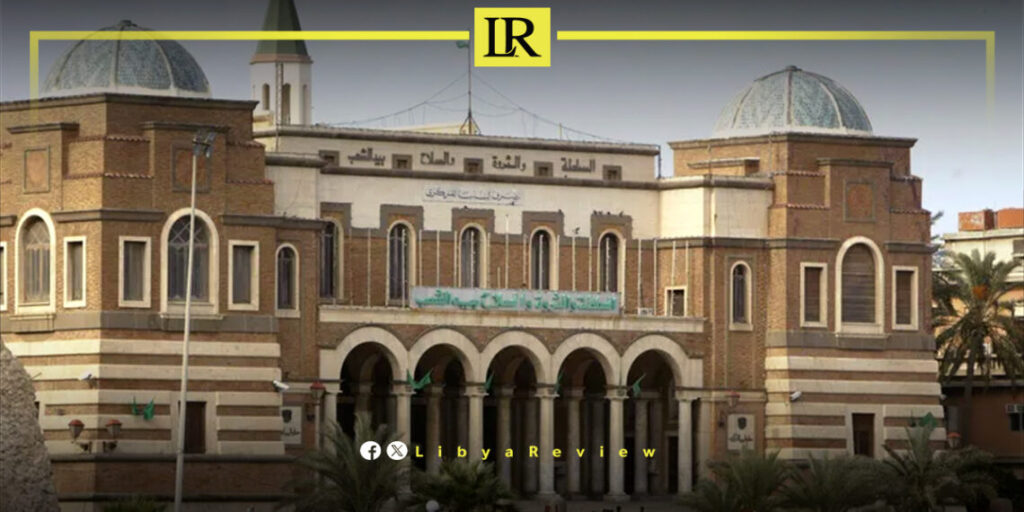
INTERNATIONAL RELATIONS
- Libyan Presidential Council Head, Mohamed Al-Mnifi, met with Sudan’s Sovereign Council leader, General Abdel Fattah al-Burhan, to discuss issues surrounding border security, the fight against terrorism, and organised crime. The meeting took place on Thursday evening in New York, on the sidelines of the 79th session of the United Nations General Assembly, according to a statement from the Libyan Presidential Council’s media office.
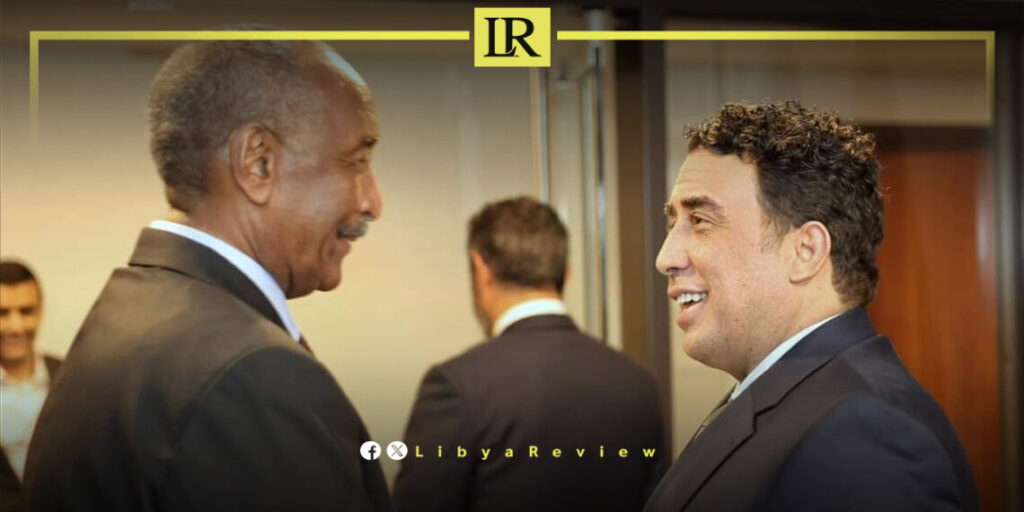
- A Libyan security delegation visited the French capital, Paris, to discuss cooperation in combating the smuggling of antiquities and protecting cultural heritage. The visit was led by Major General Senussi Saleh Al-Senussi, head of the Tourism Police and Antiquities Protection, to the French Office for the Fight against the Trafficking of Cultural Goods (OCBC) to follow up on artifacts smuggled abroad. The Libyan delegation held a meeting with officials from the OCBC, where they discussed the importance of cooperation and security coordination, and the activation of a direct contact point for information exchange.
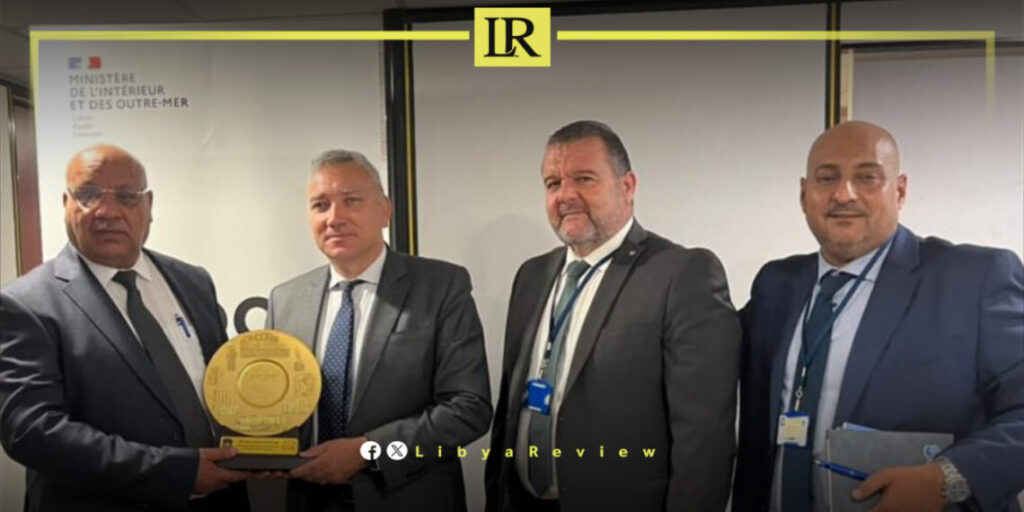
- On Monday, September 23, Libya’s Minister of Economy and Trade, Mohamed Al-Hwaij, met with the Tunisian Ambassador to Libya, Asaad Ajili, to discuss strengthening the economic partnership between the two countries. The meeting focused on improving trade relations, facilitating cross-border commerce, and boosting the movement of goods and services through their shared land borders.
